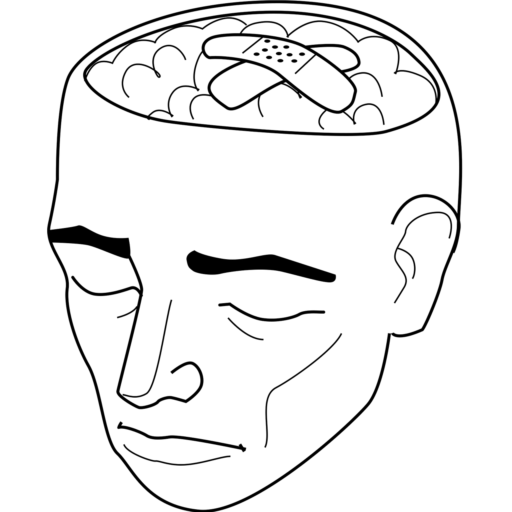Imagine waking up every morning, your heart pounding, your mind racing, and a sense of dread settling over you. You try to analyze why you feel this way, but there seems to be no reason at all. This is the perplexing phenomenon known as waking up with anxiety for no reason. In this article, we will explore this enigmatic condition, uncover its possible causes, and provide strategies to help you navigate through the unease and regain control of your mornings. So, grab a cup of tea, settle in, and let’s unravel the mystery of waking up with anxiety for no reason together.
Understanding Anxiety
Anxiety is a common human experience that everyone encounters at some point in their lives. It is a natural response to stress or danger, helping us to stay alert and cautious. However, for some individuals, anxiety can become overwhelming and interfere with their day-to-day lives. It can manifest in various ways and be triggered by different factors. Understanding anxiety is the first step in managing and overcoming it.
Definition of Anxiety
Anxiety is typically characterized by feelings of unease, worry, or fear. It is a subjective experience that varies from person to person, making it difficult to define precisely. However, anxiety typically presents with physical, emotional, and cognitive manifestations. Physical symptoms may include increased heart rate, sweating, restlessness, muscle tension, and trembling. Emotionally, anxiety can lead to irritability, a sense of impending doom, and difficulty controlling one’s feelings. Cognitively, anxiety may cause racing thoughts, obsessive worrying, and difficulty concentrating.
Causes of Anxiety
The causes of anxiety are varied and complex, often involving a combination of genetic, environmental, and psychological factors. Genetics play a role in predisposing individuals to anxiety disorders, as some people may be more genetically susceptible to developing anxiety than others. Environmental factors, such as traumatic experiences or significant life changes, can also trigger anxiety. Additionally, certain personality traits, such as perfectionism or a tendency to overthink, may contribute to the development of anxiety disorders.
Types of Anxiety Disorders
Anxiety disorders are a group of mental health conditions characterized by excessive and persistent feelings of anxiety and fear. These disorders can significantly impact a person’s daily life, relationships, and overall well-being. While there are several types of anxiety disorders, the most common ones include Generalized Anxiety Disorder (GAD), Panic Disorder, Social Anxiety Disorder, Obsessive-Compulsive Disorder (OCD), and Post-Traumatic Stress Disorder (PTSD).
Generalized Anxiety Disorder (GAD)
Generalized Anxiety Disorder is characterized by chronic and excessive worry and anxiety about various aspects of life, such as work, relationships, health, or finances. Individuals with GAD often find it challenging to control their worrying and may experience physical symptoms such as difficulty sleeping, fatigue, muscle tension, and irritability.
Panic Disorder
Panic Disorder involves recurring and unexpected panic attacks, which are intense episodes of fear accompanied by physical symptoms such as a racing heart, shortness of breath, and a sense of impending doom. Panic attacks can be debilitating and may lead to significant lifestyle disruptions as sufferers often fear having future panic attacks.
Social Anxiety Disorder
Social Anxiety Disorder, also known as social phobia, involves an intense fear of social situations and a constant worry about being embarrassed, judged, or humiliated. Individuals with social anxiety may avoid social interactions, leading to isolation and difficulties in forming relationships or pursuing personal goals.
Obsessive-Compulsive Disorder (OCD)
Obsessive-Compulsive Disorder is characterized by intrusive thoughts, images, or urges (obsessions) that lead to repetitive behaviors or mental acts (compulsions). These obsessions and compulsions can become time-consuming and interfere with daily functioning, causing distress and anxiety.
Post-Traumatic Stress Disorder (PTSD)
Post-Traumatic Stress Disorder can develop following exposure to a traumatic event, such as war, natural disaster, or personal assault. Individuals with PTSD may experience intrusive memories, flashbacks, nightmares, and heightened anxiety. Avoidance of places, people, or situations associated with the traumatic event is also common.

Normal vs. Excessive Anxiety
While anxiety is a normal and adaptive response, it is essential to differentiate between normal anxiety and excessive anxiety that may indicate an anxiety disorder.
Identifying Normal Anxiety
Normal anxiety is typically temporary and situation-specific. It arises in response to a perceived threat or stressor, helping us to stay vigilant and take necessary action. For example, feeling anxious before a job interview is a normal response as it motivates us to prepare. Normal anxiety does not interfere significantly with daily functioning and tends to subside once the stressor or threat is resolved.
Recognizing Excessive Anxiety
Excessive anxiety, on the other hand, is disproportionate to the actual threat or stressor and persists beyond what is considered normal under the circumstances. It can be chronic and pervasive, impacting various aspects of one’s life, including relationships, work, and overall well-being. If your anxiety is severe, lasts for an extended period, and interferes with your daily functioning or quality of life, it may be an indication of an anxiety disorder.
Transient and Chronic Anxiety
Anxiety can also be categorized based on its duration and intensity: transient anxiety and chronic anxiety.
Transient Anxiety
Transient anxiety is short-lived and related to a specific situation or event, such as giving a presentation, starting a new job, or taking an important exam. It is a natural response to stressors and typically subsides once the event is over or the stressor is resolved. Transient anxiety is considered normal and does not require treatment unless it becomes excessive or recurrent.
Chronic Anxiety
Chronic anxiety, on the other hand, is long-lasting and persists even in the absence of an immediate threat or stressor. It can be a symptom of an anxiety disorder and may significantly interfere with an individual’s ability to function and enjoy life. Chronic anxiety often requires professional intervention and treatment to alleviate its symptoms and address its underlying causes.

The Sleep-Anxiety Connection
Sleep and anxiety have a bidirectional relationship, meaning that anxiety can disrupt sleep, and poor sleep can contribute to increased anxiety levels. It is a vicious cycle that needs to be understood to effectively manage anxiety symptoms.
Impact of Anxiety on Sleep
Anxiety can significantly interfere with the ability to fall asleep and stay asleep. Racing thoughts, worry, and physical symptoms of anxiety, such as increased heart rate and muscle tension, can make it difficult to relax and drift off into restful sleep. Individuals with anxiety disorders may also experience nightmares or night sweats, further disrupting their sleep patterns.
How Sleep Affects Anxiety
On the flip side, inadequate or poor-quality sleep can amplify anxiety symptoms. When you are sleep-deprived, your brain is more reactive to stressors, making it easier to trigger feelings of anxiety. Lack of sleep can also impair cognitive functioning, reducing your ability to cope with stress and making you more vulnerable to anxiety. Inadequate sleep can lower your resilience and overall well-being, exacerbating anxiety symptoms.
Understanding Morning Anxiety
Waking up with anxiety for no reason can be a confusing and distressing experience. Morning anxiety refers to experiencing increased levels of anxiety upon waking up, even before the day has started. It can have various symptoms and possible triggers or causes.
Symptoms and Characteristics
Morning anxiety often presents with symptoms similar to other anxiety disorders, such as racing thoughts, irritability, restlessness, and physical manifestations like increased heart rate and muscle tension. Individuals with morning anxiety may also experience excessive worry about the upcoming day, feeling overwhelmed by the tasks and responsibilities that lie ahead. The anxiety experienced in the morning can set the tone for the entire day, making it essential to address and manage these symptoms.
Possible Triggers or Causes
Morning anxiety can stem from a combination of psychological and biological factors. It may be triggered by unconscious stressors that accumulate while you sleep, unresolved emotional issues that surface upon waking, or excessive worry about the uncertainty of the day ahead. Additionally, imbalances in your body’s circadian rhythm, neurotransmitters, or hormones can also contribute to the experience of morning anxiety.

Psychological Factors
Several psychological factors can influence morning anxiety, ranging from unconscious stressors to emotional regulation.
Unconscious Stressors
Unconscious stressors refer to underlying worries, fears, or conflicts that may not be readily apparent but can still contribute to morning anxiety. These stressors may accumulate while you sleep, as your mind processes and tries to resolve unresolved emotional issues. Exploring and addressing these unconscious stressors through therapy or self-reflection can help alleviate morning anxiety.
Dreams and Nightmares
Dreams and nightmares can also impact morning anxiety. Dreams serve as a way for our mind to process information and emotions, often reflecting our fears, worries, or unresolved conflicts. When dreams become intense nightmares, they can leave us feeling anxious and emotionally overwhelmed upon waking. Paying attention to recurring themes or patterns in your dreams and discussing them with a therapist can provide valuable insights into addressing morning anxiety.
Emotional Regulation
Difficulties in regulating emotions can contribute to morning anxiety. If you have trouble managing stress, expressing emotions constructively, or maintaining a positive mindset, it can lead to heightened anxiety upon waking. Developing healthy coping mechanisms, such as mindfulness, deep breathing exercises, or practicing gratitude, can help improve emotional regulation and reduce morning anxiety.
Biological Factors
Biological factors, such as circadian rhythm imbalance, neurotransmitter imbalances, and hormonal fluctuations, can also contribute to morning anxiety.
Circadian Rhythm Imbalance
Your circadian rhythm is your internal body clock that regulates essential processes, including sleep and wakefulness. When this rhythm is disrupted or out of balance, it can lead to difficulties falling asleep, waking up abruptly, or experiencing morning anxiety. Maintaining a consistent sleep schedule, avoiding stimulants before bed, and creating a sleep-friendly environment can help regulate your circadian rhythm and alleviate morning anxiety.
Neurotransmitter Imbalances
Neurotransmitters, such as serotonin and gamma-aminobutyric acid (GABA), play a crucial role in regulating mood and anxiety. Imbalances in these neurotransmitters can contribute to the experience of morning anxiety. Seeking professional help to diagnose and treat any neurotransmitter imbalances can be beneficial in managing anxiety symptoms.
Hormonal Fluctuations
Hormonal fluctuations, particularly in women, can influence morning anxiety. Hormonal changes during the menstrual cycle, pregnancy, or menopause can impact mood and contribute to increased anxiety levels. Awareness of your hormonal patterns and seeking appropriate medical guidance can help manage hormone-related morning anxiety.
Reducing Morning Anxiety
If you regularly wake up with anxiety, there are several strategies you can employ to reduce its impact on your day-to-day life.
Establishing a Bedtime Routine
Creating a consistent and calming bedtime routine can signal your body and mind that it is time to relax and prepare for sleep. Consider activities such as reading a book, taking a warm bath, or practicing relaxation techniques like deep breathing or meditation. Engaging in these soothing activities before bed can set a positive tone for the morning and help reduce morning anxiety.
Relaxation Techniques
Incorporating relaxation techniques into your daily routine can be immensely helpful in managing morning anxiety. Deep breathing exercises, progressive muscle relaxation, and guided imagery are just a few relaxation strategies that can help you calm your mind and body. Experiment with different techniques to find what works best for you and make it a part of your morning routine.
Cognitive-Behavioral Therapy (CBT)
Cognitive-Behavioral Therapy is an evidence-based treatment approach for anxiety disorders that can be particularly useful in reducing morning anxiety. CBT helps individuals identify and challenge negative thought patterns and develop effective coping strategies. Working with a CBT therapist can provide guidance and support in managing morning anxiety effectively.
Lifestyle Changes
Making positive lifestyle changes can have a significant impact on reducing morning anxiety. Engaging in regular physical exercise, maintaining a healthy diet, prioritizing restful sleep, and practicing stress-management techniques can all contribute to overall well-being and reduce anxiety symptoms. Making small but consistent changes in your daily habits can lead to significant improvements in your overall mental and emotional health.
When to Seek Professional Help
While it is common to experience occasional anxiety, certain signs indicate that it may be time to seek professional help.
Persistent and Severe Symptoms
If your anxiety symptoms persist over an extended period and significantly impact your daily life, it is important to reach out to a mental health professional. Persistent and severe symptoms may be indicative of an underlying anxiety disorder that requires professional evaluation and treatment.
Interference with Daily Life
If your anxiety interferes with your ability to perform daily activities, maintain relationships, or pursue your goals, seeking professional help is crucial. Anxiety should not stand in the way of your overall well-being, and a mental health professional can provide the necessary support and guidance to help you regain control.
Impact on Relationships and Work
If your anxiety is affecting your relationships with family, friends, or colleagues, or impacting your performance at work or school, it is essential to seek professional assistance. Anxiety can strain relationships and hinder professional growth, but with the right treatment, it is possible to alleviate these challenges and regain a sense of control.
Suicidal Thoughts
If you or someone you know is experiencing suicidal thoughts or exhibiting self-destructive behaviors, immediate help should be sought. Contact a mental health professional, a helpline, or emergency services to ensure the safety and well-being of yourself or the individual in question.
In conclusion Waking Up With Anxiety For No Reason
Can be unsettling, but it is essential to take steps to understand and manage these feelings. Anxiety is a complex phenomenon with a wide range of causes and manifestations. By recognizing the different types of anxiety disorders, understanding the distinction between normal and excessive anxiety, and exploring the psychological and biological factors contributing to morning anxiety, it becomes possible to develop strategies for reducing its impact. From establishing a bedtime routine and practicing relaxation techniques to seeking professional help when necessary, there are various ways to effectively manage morning anxiety. Remember, you are not alone, and with the right support, it is possible to regain control and lead a fulfilling life free from unnecessary anxiety.
Frequently Asked Questions:
1. What causes anxiety upon waking up? Morning anxiety can be caused by various factors, such as stress, hormonal fluctuations, or unresolved issues that surface during sleep.
2. How do I stop waking up panicking? Implementing a calming bedtime routine, practicing relaxation techniques, and addressing underlying stressors can help prevent waking up in a panicked state.
3. How do I deal with anxiety first thing in the morning? Start the day with mindfulness exercises, deep breathing, and positive affirmations. Creating a morning routine that promotes relaxation can set a positive tone.
4. Why do I wake up in fight or flight mode? Waking up in fight or flight mode may result from the body’s response to stressors, whether physical or psychological, triggering a heightened alertness.
5. What is the 3 3 3 rule for anxiety? The 3 3 3 rule involves acknowledging three things you see, hear, and feel, helping ground yourself and manage anxiety in the moment.
6. Is morning anxiety a thing? Yes, morning anxiety is a common experience for some individuals and can be attributed to a combination of physiological and psychological factors.
7. Is it normal to wake up panicked?
- Occasional morning panic may be normal, but if it becomes frequent or severe, it’s advisable to explore potential causes and coping strategies.
8. Why do I wake up with a feeling of dread? Waking up with a sense of dread can be linked to anxiety, stress, or even certain sleep disorders. Identifying triggers and seeking support is essential.
9. What is sleep anxiety? Sleep anxiety involves feelings of worry or fear related to sleep. It can manifest as difficulty falling asleep, night awakenings, or anxious thoughts before bedtime.
10. What time of day is anxiety the worst? – Anxiety can vary throughout the day, but for some, it may be more pronounced in the morning due to factors like cortisol levels peaking during that time.
11. Can magnesium help reduce anxiety? – Magnesium may have a calming effect and can contribute to anxiety reduction. Consult with a healthcare professional before adding supplements to your routine.
12. Can sleep anxiety be cured? – Managing sleep anxiety involves identifying triggers, practicing relaxation techniques, and maintaining a consistent sleep routine. It can be effectively managed with the right approach.
13. How do you reset your nervous system? – Resetting the nervous system involves activities like deep breathing, meditation, progressive muscle relaxation, and engaging in activities that bring joy and relaxation.
14. How to calm your nervous system? – Calming the nervous system can be achieved through mindfulness practices, regular exercise, sufficient sleep, and avoiding excessive stimulants like caffeine.
15. Do people with anxiety need more sleep? – Individuals with anxiety may benefit from adequate and quality sleep, as it plays a crucial role in emotional well-being and overall mental health.
16. Why is anxiety worse at night? – Anxiety at night may be influenced by factors such as quiet surroundings, fewer distractions, and the mind’s tendency to ruminate during periods of stillness.
17. How long does sleep anxiety last? – The duration of sleep anxiety varies. Implementing effective coping strategies and addressing underlying causes can contribute to its resolution over time.
More on Waking Up With Anxiety For No Reason here.
